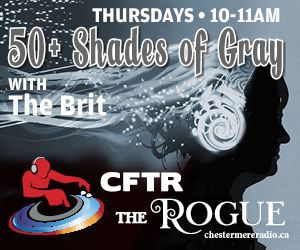September is a very special time of year, and I’m not referring to the little munchkins going back to school, or the Labour Day Classic.
No, gentle reader, the annual hop harvest is now upon us, which means there will be a burst of wet-hopped craft beers appearing on the market, only to disappear within the next month or so.
Faithful readers may recall your humble narrator waxing poetic about the Bavarian Purity Law of 1516, which dictated that the only permissible ingredients in beer were water, barley, and hops.
Of those three ingredients, it’s pretty self-explanatory why we need water in our beer, and the natural sugars in the barley are metabolized by yeast into ethyl alcohol (C2H5OH) and carbon dioxide.
However, the hops are used only for flavoring and aroma; you could certainly make a beer without hops, but it would just taste like soggy bread.
For those readers who may not be aware, hops are the flowers of the Humulus lupulus plant, a robust vine closely related to the wacky tabaccy plant more commonly known as Cannabis sativa.
While there are similarities, hops is used almost exclusively as a bittering and antiseptic agent in beer, and will in no way give you the munchies or make you want to chill out while listening to Pink Floyd.
The addition of hops are what provides the bitterness in a beer, as well as a natural antiseptic that helps preserve the beer and prevent spoilage, which was particularly important in the pre-refrigeration era.
In fact, the India Pale Ale style of beer was invented in the 1800s by doubling the hop dosage in a typical English Pale Ale, because a more heavily hopped beer would not spoil as readily on the long sea voyage from England to India.
Unspoiled beer was very important to British troops stationed in India back in the 1800s, as their pay included a ration of a yard of beer each day, and hops are what made this possible.
Your intrepid liquor reporter has been growing his own hops in the back yard, and just picked them last week for a marathon home brewing session.
Since fresh hops lose their potency quite quickly, the normal method is to rush them to a processing facility where they are dried and vacuum packed for ease of storage and long-term stability.
However, at hop harvest time every year, enterprising craft breweries and home brewers pluck the fresh hop flowers and immediately use the hops to brew up a batch of beer.
This process is called wet hopping, and results in a much fresher, greener, and aromatic brew than the more common dried hops.
A rule of thumb for homebrewers is hops are dried to around one-sixth of their original weight, so you will need to add six times the amount of wet hops when you are lucky enough to lay your hands on them.
Your intrepid liquor reporter tries to get the best of both worlds in his harvest-time homebrew, by using about half the amount of dried hops for bittering, and six times that weight in fresh wet hops to add aromatics to the beer.
Due to limited space in my laundry / brewing room, I usually can only manage two 11-litre batches of beer before running out of space and fermentation vessels.
After picking the hops last week, I brewed up a batch of traditional English Pale Ale, as well as a batch of German Altbier, each going into 3-gallon kegs for a month for conditioning and carbonation.
The Pale Ale style is the safe and easy choice for decidedly mediocre homebrewers like your humble narrator, as it is a forgiving style that is hard to mess up.
I am more excited about the Altbier, the traditional beer of the city of Düsseldorf, which your intrepid liquor reporter discovered on a vacation in Germany a few years back.
Altbier is unique because it is brewed with a top-fermenting ale yeast, but fermented at a low temperature like a lager. This produces a robustly flavoured beer with a dark copper colour, but demonstrating a clean and crisp aftertaste more akin to a lager.
These next few weeks of conditioning the beer will be fraught with anticipation, eagerly awaiting the tapping of the keg for the only wet-hopped brew of the year, when your humble narrator will thank Mother Nature for her bountiful harvest.




